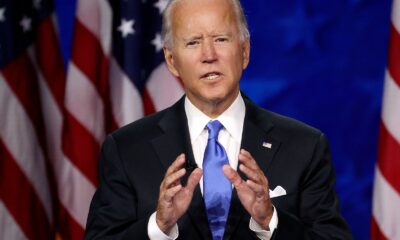Over the next four weeks, President Joe Biden and Democratic leaders in Congress will attempt to seal Biden’s legacy as a transformative president by setting the stage for nearly $5 trillion of new federal investments in the next decade, money that could profoundly change how many Americans live.
But the two-track plan’s success is far from certain, and it could easily fall apart.
To get it done, Biden and Democratic leaders need to win the support of two opposing groups: Skeptical Republicans in the Senate who are intent on blocking the president’s agenda, and a Democratic caucus with a wide array of views on how much the government should spend to boost the economy and combat climate change.
“There are 50 Democrats in the caucus, I suspect there are 50 different points of view,” said Sen. Bernie Sanders, the Vermont democratic socialist and Senate Budget Committee chair who will play a major role in steering the Democrats’ bill through Congress under the budget reconciliation process.
The bipartisan infrastructure plan and a separate Democratic bill to expand the social safety net are crucial for Biden. They would fulfill his core campaign promise to be a president for the middle class, and they would also serve as an example of how “American democracy can deliver” a better quality of life than autocracies can.
The president is up against the clock. Several deadlines looming in Congress mean this is a make-or-break moment for his agenda.
Read More: Read US President Joe Biden’s July 4 Full Speechhttps://agnesisika.com/independence-read-us-president-joe-bidens-july-4-full-speech/
The United States will hit another debt ceiling by late July or early August, sparking another political battle. Before the end of September, Congress also needs to vote on must-pass spending bills to fund the government. Beginning Aug. 9, the Senate is scheduled to be out on recess for the rest of August and much of September.
Once the annual must-pass bills are approved, Washington’s focus will turn to campaigning for next year’s midterm elections. Republicans have a historic advantage, as the president’s party typically loses congressional seats during the midterms. Democratic incumbents will need policy wins to sell to their constituents if they want to hold on to power.
Infrastructure is Biden’s second major legislative initiative after Congress passed a $1.9 trillion coronavirus aid bill less than two months into his first term iow aims to make pieces of the plan, including a strengthened child tax credit and more generous health insurance subsidies, long-term fixtures as his party tries to redefine the government’s role in households.































